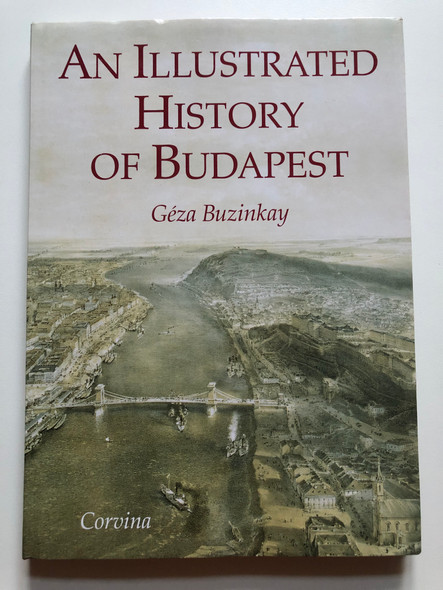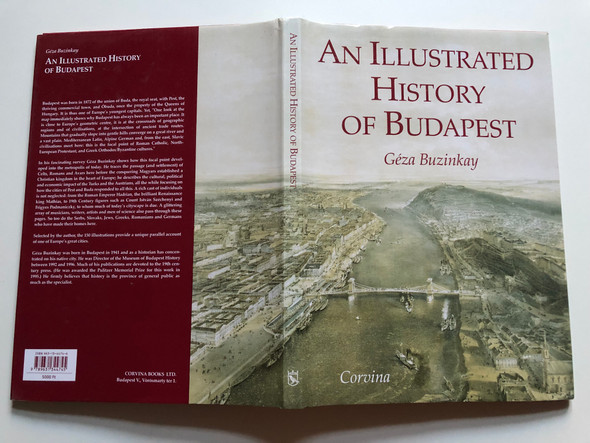Description
Jewish Cuisine in Hungary: A Cultural History with 83 Authentic Recipes
UPC 9789631364972 / 978-9631364972 / 978-9633862735 / 9789633862735
- Publisher : Central European University Press; Annotated edition (December 1, 2019)
- Language : English
- Paperback : 420 pages
- ISBN-10 : 9633862736
Overview
Jewish Cuisine in Hungary by András Koerner is a meticulously researched journey into the food culture of Hungarian Jewry before World War II. More than just a cookbook, this work is a cultural history that reconstructs the culinary traditions of Hungarian Jews as integral parts of their social and religious lives. The author, deeply committed to preserving the memory of a community at risk of being forgotten, presents eating habits within their broader historical, social, and religious contexts. Enhanced by a preface from renowned scholar Barbara Kirshenblatt-Gimblett, this book is both an academic study and a culinary treasure, featuring 83 authentic recipes and nearly 200 photos and illustrations documenting daily life, kitchens, and meals from a vanished era.
Product Features
- Author: András Koerner
- Preface: Barbara Kirshenblatt-Gimblett
- Language: English
- Publisher: Corvina, in partnership with Central European University Press
- Publication Date: 2015
- ISBN: 978-9631364972
- Format: Paperback
- Pages: 420 pages
- Dimensions: 17 cm x 24 cm
Interesting Facts
- Historical and Cultural Insight: Koerner’s book stands out for offering a comprehensive view of Jewish culinary customs and rituals, exploring their connection to various branches of Hungarian Judaism, from Orthodox to Neolog traditions.
- Visual Documentation: Includes nearly 200 historical photos, sketches, and documents that bring to life the kitchens, meals, and community gatherings of pre-war Hungarian Jewry.
- Authentic Recipes: While primarily a cultural history, the book features 83 authentic recipes, allowing readers to experience the flavors that shaped Jewish Hungarian cuisine.
- Praise from Experts: Barbara Kirshenblatt-Gimblett lauds this work as "the most comprehensive account of a Jewish food culture to date," underscoring its uniqueness among culinary histories.
Publishers
Corvina Publishing, Budapest, in collaboration with Central European University Press
We value your feedback! Share your experience with this product to help others make informed decisions. Your review is important to us!
Hashtags
#JewishCuisine #HungarianJewishCulture #AndrásKoerner #CulinaryHistory #KosherCooking #CorvinaPress #CEUPress
András Koerner refuses to accept that the world of pre-Shoah Hungarian Jewry and its cuisine should disappear almost without a trace and feels compelled to reconstruct its culinary culture. His book—with a preface by Barbara Kirshenblatt-Gimblett—presents eating habits not as isolated things, divorced from their social and religious contexts, but as an organic part of a way of life.
According to Kirshenblatt-Gimblett: “While cookbooks abound, there is no other study that can compare with this book. It is simply the most comprehensive account of a Jewish food culture to date.” Indeed, no comparable study exists about the Jewish cuisine of any country, or, for that matter, about Hungarian cuisine. It describes the extraordinary diversity that characterized the world of Hungarian Jews, in which what could or could not be eaten was determined not only by absolute rules, but also by dietary traditions of particular religious movements or particular communities.
Ten chapters cover the culinary traditions and eating habits of Hungarian Jewry up to the 1940s, ranging from kashrut (the system of keeping the kitchen kosher) through the history of cookbooks, and some typical dishes. Although this book is primarily a cultural history and not a cookbook, it includes 83 recipes, as well as nearly 200 fascinating pictures of daily life and documents.
Review
"Readers looking for a typical cookbook may be alarmed when they dig into this gorgeous volume. While the subtitle advertises eighty-three authentic recipes, neither many of the ingredients (goose, carp, giblets, boiled beef) nor the techniques (stuffing goose necks, making pudding from smoked beef) seem particularly accessible. Yet this book is quite irresistible. Beyond the honesty and charm, it’s Koerner’s commitment to defying Nazi destruction, to saving Hungarian Jewish culture, that makes this book so compelling. Jewish Cuisine in Hungary is righteous scholarship."―Jewish Book Council
"This is a rigorously researched, engagingly written recreation of daily life filled with rarely seen photographs and pen and ink illustrations by Koerner himself. I adored this book.... Koerner focuses on the objects, food, and people that were an integral part of his great-grandmother’s everyday existence. These alluring pages rescue a way of life from oblivion via an indelible portrait of an observant Jewish woman who serves as a representative of her entire community. Much is illuminated through her recipes and her great-grandson’s loving illustrations."―The Arts Fuse
"Andras Koerner, author of Jewish Book Award-winning Jewish Cuisine in Hungary, uses untouched culinary traditions to explore centuries of cultural history before the Holocaust. The 2019 Jewish Book Award in the inaugural category of food writing and cookbooks has been given to 'Jewish Cuisine in Hungary' by Andras Koerner. As Koerner told The Times of Israel in a phone conversation, the book 'offers a cultural history of the diversity of Hungarian Jewish cuisine before 1945.'" https://www.timesofisrael.com/flavor-of-prewar-hungarian-jewish-life-captured-in… ―Rich Tenorio, The Times of Israel
"András Koerner's Jewish Cuisine in Hungary paints a vivid portrait of prewar Jewish Hungary through its food, its bakers, its home-makers, and more. The focus on Jewish households and local businesses shifts the scholarly gaze from typical historical subjects to the realm of working people and women―fertile ground for meaningful inquiry. The book quotes extensively from memoirs, cookbooks, and periodicals of the time with each rich passage reveling in the minutiae of daily life. Koerner masterfully weaves together photos, objects, and eighty-three recipes plucked from rare historical cookbooks to transport the reader to Budapest in the late nineteenth and early twentieth centuries, to Hungarian Jewish holiday tables and rural goose farms. Ultimately, Koerner sheds new light on prewar Hungarian Jewish life by exploring the role food plays in its culture in such innovative ways, and so too does he help us understand the Hungarian Jewish place in broader Jewish food culture. Jewish Cuisine in Hungary will no doubt serve as an essential historical reference for years to come, while also modeling what's possible in the field of food scholarship." ―National Jewish Book Award
About the Author




























